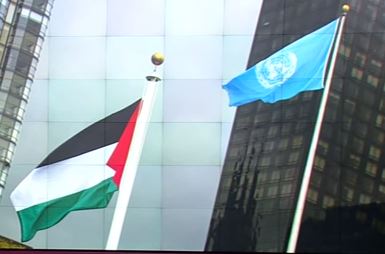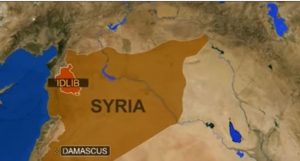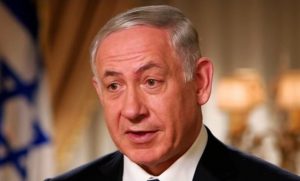
The Times of Israel: Jordan’s King Abdullah II, backed by other Arab leaders, issued a harsh warning to Israel Wednesday that settlements were undermining any chance for peace with the Palestinians and with it any hope of a regional deal with Arab states.
“Israel’s continued settlement expansion…undermine[s] chances for peace,” Abdullah said, speaking as the 28th Arab League Summit in kicked off on the Jordanian side of the Dead Sea.
“There can be no peace nor stability in the region without a just and comprehensive solution to the Palestinian cause, the core issue of the Middle East, based on the two-state solution,” he said.
Abdullah was joined by a number of leading Arab heads of state, including Saudi King Salman bin Abdul Aziz, the Emir of Qatar Sheikh Hamad bin Khalifa Al Thani and Egyptian President Abdul Fatah A-Sissi, who called for a two-state solution, saying it is the only viable solution to the Israeli-Palestinian conflict.
Their strong stand at the summit comes after Israeli Prime Minister Benjamin Netanyahu and US President Donald Trump in recent months appeared to back away from a call for a Palestinian state alongside Israel.
Crucially the strongest words came from the two Arab nations with which Israel has a peace deal and close security cooperation — Jordan and Egypt.
“Egypt has sought and continues to seek a comprehensive and just solution to this issue, based on the establishment of a Palestinian state on the 1967 borders with East Jerusalem as its capital,” said Sissi.
Palestinian Authority President Mahmoud Abbas singled out the role of these two Arab nations in pushing Israel toward an agreement.
Abbas said he looks forward to the support of all 21 Arab countries who attended the summit to end Israeli settlement expansion and increase recognition of the state of Palestine, but “especially from the countries that have recognized Israel, and believe in the two-state solution.”
This may have been a rebuke to them for taking part in a secret meeting last year with Netanyahu in a summit in the Jordanian Red Sea resort of Aqaba, organized by the US without Abbas’s knowledge.
The summit failed to produce results, but it showed that even Abbas’s main allies were considering adopting a regional plan to solve the conflict.
And publicly, Abbas got the support for them that he wanted. Not only did Jordan and Egypt reaffirm their commitment to the two-state solution, they also both referred to it as the “core issue” of the Middle East at a time when most observers would point toward the Syrian civil war, the Islamic State and Iran’s attempts to spread its influence through the region as more pressing issues.
Notably, Abdullah did not mention the Arab peace plan, but Sissi did, saying it was the basis for a reaching a solution to the conflict.
Saudi King Salman also reaffirmed his support for the plan, which was first put forward by his country in 2002. The Arab peace plan offers Israel normalization with dozens of Arab and Muslim countries in exchange for the establishment of a Palestinian state along 1967 borders.
Israel is pushing for regional peace in which normalization with some Arab countries would precede a deal with the Palestinians. Abbas objects to reopening the Arab plan to negotiations, fearing it would further weaken the Palestinian position vis-a-vis Israel.
Netanyahu has not formally abandoned his stated support for the two-state solution, but has stopped mentioning it in his speeches since Trump was elected. Instead, he has made vague statements about seeking a region-wide agreement.
Netanyahu frequently boasts of strong behind-the-scenes alliances with unidentified Arab countries.
In a speech this week to AIPAC, the pro-Israel American lobby group, Netanyahu once again alluded to a region-wide approach, saying that “common dangers faced by Israel and many of our Arab neighbors now offer a rare opportunity to build bridges toward a better future.”
In recent weeks however, it appears that Trump is moving back toward supporting a two state solution as the best way to move forward.
His envoy Jason Greenblatt is at the Arab League summit and Trump has invited Abbas to visit the White House in April, following his saying that he wants to strike the “ultimate deal” between Israelis and Palestinians.
Abbas’s visit, however, will be preceded by the Egyptian and Jordanian leaders, who are both known as having good relations with Trump.
The Associated Press contributed to this report




